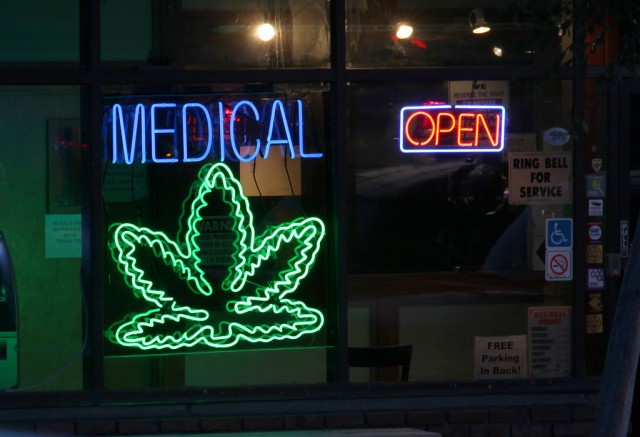By Joseph Iemma
Assistant Features Editor
For once, let’s just take a step back, and be honest with ourselves; not just as people, but as a society. Doesn’t America have the ‘weirdest’ relationship with marijuana?
Seriously, look at the 1960s, where most of the youth started to smoke marijuana, only to love and embrace it. Fast-forward 20 years or so to Ronald Reagan’s America, and the only thing Americans could agree on was “Say No to Drugs!” (Oh, and death to the U.S.S.R). Fast-forward another 30 years to Obama’s America, and the marijuana every person above 45 tried to burn out of existence permanently, is now decriminalizing marijuana, one city at a time. In some states, it’s now legal to smoke recreationally, while in others, it’s legal to ‘intake’ for medical purposes.
The Columbia Care New York Medical Marijuana Dispensary in Riverhead, the first of its kind to open on Long Island, doesn’t require patients to smoke the marijuana for treatment, according to CEO Nicholas Vita. “What we offer is a sublingual oral tincture, which is effectively a liquid that you place underneath the tongue and then gets absorbed into the system,” Vita said.
What about side effects? Well, in an interview with CBS News Riverhead, Vita said, “The side effect profile for our product is euphoria and increase in appetite.” Vita insists that the ingestible form of marijuana he’s prescribing to his patients is a safe, non-addictive form of treatment, that allows the patient to live “comfortably” while taking on his or her illness(es).
“I think that’s the problem with medical marijuana,” says John Berry, father of two LIU Post graduates. “Number one, is it really that much more effective than traditional medicine? Two, what kind of sickness does one need to qualify for this form of treatment?”
That’s a great and honest question by Berry, and one that deserves answers in much further detail, especially via federal law. According to California law, one can ingest medical marijuana if it assists the patient in dealing with arthritis. However, if that same person with clinically diagnosed arthritis wishes to receive a prescription from a medical marijuana facility in Louisiana, Delaware, Connecticut or Colorado, he or she will not be allowed a prescription.
Drugs that are abused can destroy homes in an instant, and is one of the main contributing factors for why drugs carry such a terrible stigma, for valid reasons, of course. However, with America becoming a more forward-thinking country, our ability to better understand drugs like marijuana, and how we can use them effectively, instead of boycotting them all together, reflects our growth as people.
If you were to ask me if medical marijuana has potential to be an effective way to treat patients with pain, I would tell you this, “I don’t know yet, but it’s a good conversation to have, and I’m glad we’re at a place where a conversation about drugs, is no longer taboo.”




Be First to Comment